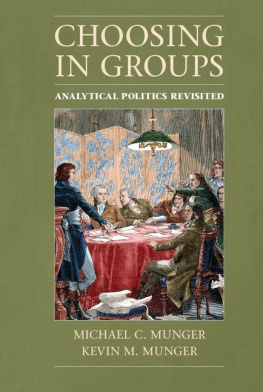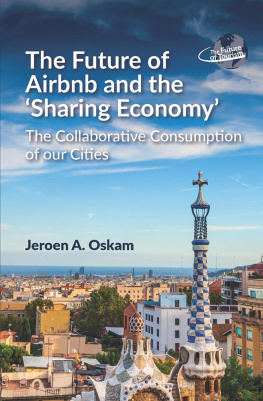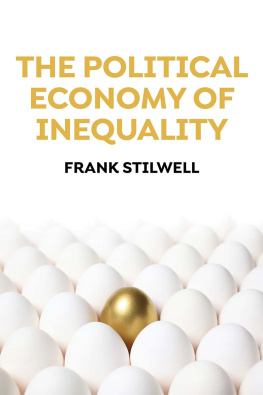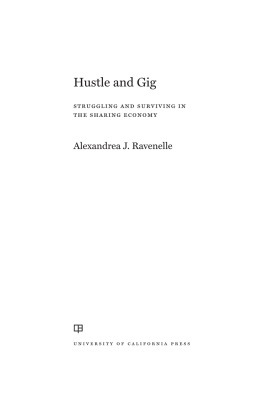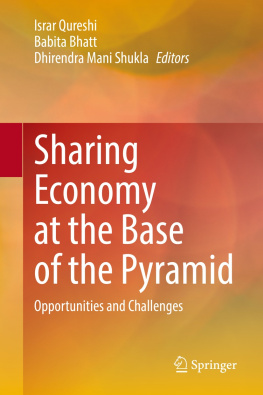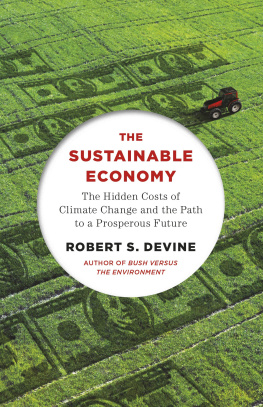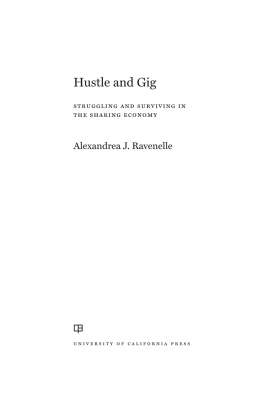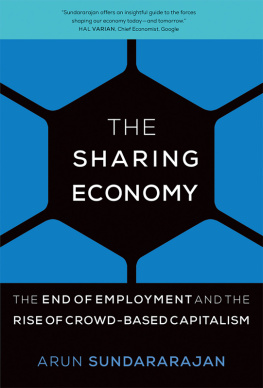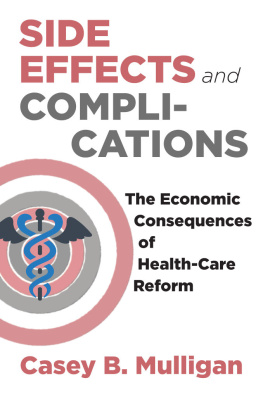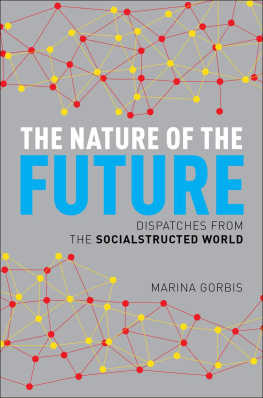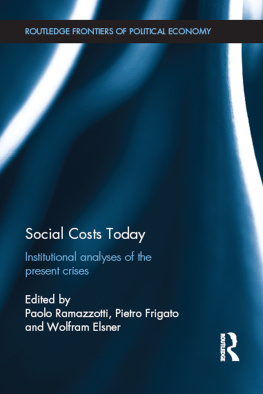Tomorrow 3.0
Transaction Costs and the Sharing Economy
With the growing popularity of apps such as Uber and Airbnb, there has been a keen interest in the rise of the sharing economy. Michael C. Munger brings these new trends in the economy down to earth by focusing on their relation to the fundamental economic concept of transaction costs. In doing so Munger brings a fresh perspective on the sharing economy in clear and engaging writing that is accessible to both general and specialist readers. He shows how, for the first time, entrepreneurs can sell reductions in transaction costs, rather than reductions in the costs of the products themselves. He predicts that smart phones will be used to commodify excess capacity, and reaches the controversial conclusion that a basic income will be required as a consequence of this new transaction costs revolution.
Michael C. Munger is a Professor in the Department of Political Science and the Department of Economics at Duke University. He studied for a PhD under Barry Weingast and Douglass North (1993 Nobel Prize) at Washington University in St. Louis. After working at the US Federal Trade Commission, Munger taught at Dartmouth, Texas, and North Carolina before moving to Duke in 1997. He edited the journal Public Choice from 2005 to 2009.
Cambridge Studies in Economics, Choice, and Society
Founding Editors
Timur Kuran, Duke University
Peter J. Boettke, George Mason University
This interdisciplinary series promotes original theoretical and empirical research as well as integrative syntheses involving links between individual choice, institutions, and social outcomes. Contributions are welcome from across the social sciences, particularly in the areas where economic analysis is joined with other disciplines such as comparative political economy, new institutional economics, and behavioral economics.
Books in the Series
TERRY L. ANDERSON and GARY D. LIBECAP Environmental Markets: A Property Rights Approach
MORRIS B. HOFFMAN The Punishers Brain: The Evolution of Judge and Jury
PETER T. LEESON Anarchy Unbound: Why Self-Governance Works Better Than You Think
BENJAMIN POWELL Out of Poverty: Sweatshops in the Global Economy
CASS R. SUNSTEIN The Ethics of Influence: Government in the Age of Behavioral Science
JARED RUBIN Rulers, Religion, and Riches: Why the West Got Rich and the Middle East Did Not
JEAN-PHILIPPE PLATTEAU Islam Instrumentalized: Religion and Politics in Historical Perspective
TAIZU ZHANG The Laws and Economics of Confucianism: Kinship and Property in Preindustrial China and England
ROGER KOPPL Expert Failure
CAROLYN M. WARNER , RAMAZAN KILIN , CHRISTOPHER W. HALE , and ADAM B. COHEN Generating Generosity in Catholicism and Islam: Beliefs, Institutions, and Public Goods Provision
Tomorrow 3.0
Transaction Costs and the Sharing Economy
Michael C. Munger
Duke University
University Printing House, Cambridge CB2 8BS, United Kingdom
One Liberty Plaza, 20th Floor, New York, NY 10006, USA
477 Williamstown Road, Port Melbourne, VIC 3207, Australia
314321, 3rd Floor, Plot 3, Splendor Forum, Jasola District Centre, New Delhi 110025, India
79 Anson Road, #0604/06, Singapore 079906
Cambridge University Press is part of the University of Cambridge.
It furthers the Universitys mission by disseminating knowledge in the pursuit of education, learning, and research at the highest international levels of excellence.
www.cambridge.org
Information on this title: www.cambridge.org/9781108427081
DOI: 10.1017/9781108602341
Michael C. Munger 2018
This publication is in copyright. Subject to statutory exception and to the provisions of relevant collective licensing agreements, no reproduction of any part may take place without the written permission of Cambridge University Press.
First published 2018
Printed in the United States of America by Sheridan Books, Inc.
A catalogue record for this publication is available from the British Library.
ISBN 978-1-108-42708-1 Hardback
ISBN 978-1-108-44734-8 Paperback
Cambridge University Press has no responsibility for the persistence or accuracy of URLs for external or third-party internet websites referred to in this publication and does not guarantee that any content on such websites is, or will remain, accurate or appropriate.
To Donna Gingerella,
who showed me how to love,
&
to Skippy Squirrelbane,
who showed me how to live
No one claimed that any of their possessions was their own , but they shared everything they had .
Acts 4:32
Contents
Preface
There is a lovely apocryphal story, generally told about Dwight D. Eisenhower during his time as president of Columbia University: The school was growing, necessitating an expansion of the campus, which produced a very hot dispute between two groups of planners and architects about where the sidewalks should go. One camp insisted that it was obvious self-evident! that the sidewalks had to be arranged thus, as any rational person could see, while the other camp argued for something very different, with the same appeals to obviously, self-evident, rational evidence. Legend has it that Eisenhower solved the problem by ordering that the sidewalks not be laid down at all for a year: The students would trample paths in the grass, and the builders would then pave over where the students were actually walking. Neither of the plans that had been advocated matched what the students actually did when left to their own devices. There are two radically different ways of looking at the world embedded in that story: Are our institutions here to tell us where to go, or are they here to help smooth the way for us as we pursue our own ends, going our own ways?
Kevin Williamson,
The story above is true, even though it likely never happened. The truth lies in its core insight that permissionless innovation is, or should be, what institutions seek to promote. As Lu Xun put succinctly: Originally there was no path yet, as people are walking all the time in the same spot, a way appears.
There is a simple logic to the way that is appearing all around us: reduced transactions costs foster permissionless innovation to make more efficient use of excess capacity . The result is that more people can get cheaper, better access to the stuff we already have. Markets are, or can be, a form of sharing, because people often just want to use things, not (necessarily) to own them. This has always been true to some extent I never owned the huge factory machines that made my clothing; I simply shared them for a few seconds at some point, and then gave them back but the rate of change and the expansion of sharing today is unprecedented. If you want to know why at present we own rather than share, the answer is transaction costs. And that is all going to change.
The Argument
A simple summary of an entire book can be misleading because it is simple, and a summary, and therefore leaves out both details and the steps in the argument. Nonetheless, it is worthwhile to provide a map, if only to help the reader identify where each step in the larger argument is located in the hilly terrain to come.


